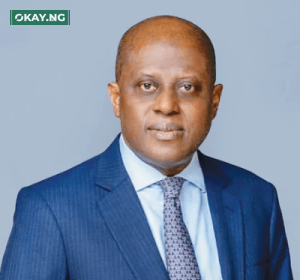The Deputy Governor, Financial System Stability, the Central Bank of Nigeria (CBN), Mr Okwu Joseph Nnanna, has disclosed that the Forex demand management policies introduced by the nation’s apex bank have started yielding results.
Nnanna, who said this while delivering a keynote address at a round table session on “Economic Outlook 2016: Implications for Business In Nigeria,” organised by the Chartered Institute of Bankers of Nigeria (CIBN) in Lagos at the weekend, noted that businesses in Nigeria are now bracing up to take up the challenge of domestic production of hitherto imported commodities aiming at reducing the demand pressure on the Forex market.
He also noted that the appropriate pricing of petroleum products underway, highlights opportunities open for local refining of crude oil being brighter than ever and this, he added, would provide investment opportunities in the down and upstream segments of the oil value sector chain.
Nnanna stressed that the apex bank was also expecting Nigerian banks to re-discover potentials in the agricultural sector as “lending to this sector will free the economy from the strangle hold which the oil and gas sector has long had on the economy,” he said.
He also mentioned that despite the economic challenges, the Capital Adequacy Ratio (CAR) of banks stood at 17.66 percent, as at December, 2015.
This, he said, is well above the prudential requirement of 10 percent, adding that non-performing loans stood at 4.88 percent representing a 2 percentage point increase, but remained below the prudential requirement of 5 percent during the review period. “These suggest the ability of the Nigeria financial system to withstand current economic challenges going forward,” Nnanna noted.
The CBN deputy governor noted that despite the challenging domestic and external macroeconomic environment which Nigerians currently face, he said he was convinced that it offers the country the much needed opportunity for introspection.
Meanwhile, the president and Chairman of the CIBN, Otunba (Mrs) ’Debola Osibogun, charged the Federal Government to provide the enabling environment to channel investments for real development in the critical sectors of the economy.
According to her: “The Federal Government plans to spend N6.08 trillion in 2016, this is 21 percent above the total expenditure for year 2015. The most pressing national challenge is how the N2.2 trillion budget deficit presented by President Muhammadu Buhari will be financed in the face of unabated fall in global oil prices which has fallen below $30 per barrel.
“Trillions of Naira have been stored away as a result of the implementation of the Treasury Single Account (TSA).”
She urged the government to create a platform for these monies to be invested back into the critical sectors under a supervised regime to generate economic growth and development.
“Any attempt to make banks fund government expenses as a social responsibility measure should be discouraged,” she observed.










